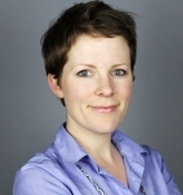
Jessie Bakker, PhD
Following completion of an MS degree focused on investigating pulse transit time in children with sleep-disordered breathing, Dr. Bakker graduated with a PhD from the University of Otago, New Zealand, in 2010. During this time, she worked on three randomized trials under the supervision of Assoc. Prof Alister Neill and Dr. Angela Campbell focused on adherence to CPAP therapy. These studies demonstrated no substantial differences in adherence between standard CPAP, flexible pressure delivery, and auto-adjusting pressure delivery, or between nasal and oronasal masks, which led Dr. Bakker to shift her focus to other potential determinants of adherence. As a postgraduate research fellow at the University of Otago, Dr. Bakker led a study designed to investigate the issue of poor CPAP adherence amongst ethnic minorities. She found that New Zealand Māori and Pacific patients used CPAP significantly fewer hours/night than New Zealand Europeans, and that this disparity was significantly associated with levels of education and socioeconomic deprivation.
A Fulbright award allowed Dr. Bakker to travel to the United States to present her findings, which led to a permanent relocation in 2011 to undertake a postgraduate fellowship at Harvard Medical School and Brigham and Women’s Hospital in the laboratory of Prof Atul Malhotra. During this period, Dr. Bakker looked at the interaction between sleep apnea and type 2 diabetes on markers of vascular reactivity, as well as the impact of CPAP and bariatric surgery on disease control and surrogate cardiovascular outcomes.
Following a promotion to faculty in 2013, Dr. Bakker returned her focus to identifying determinants of CPAP adherence, and developing and testing targeted interventions to maximize use of therapy. In collaboration with Profs Sanjay Patel and Susan Redline using data collected in the Best Apnea Interventions in Research (BestAIR) trial, Dr. Bakker demonstrated that a fairly simple, protocolized behavioral therapy was associated with increased average CPAP adherence of 99 minutes per night. In a subsequent pilot study, Dr. Bakker demonstrated that attendance at a sleep apnea peer-support group was associated with a greater proportion of patients reaching the Medicare CPAP adherence threshold, which is often used clinically to determine whether a patient is eligible to receive long-term treatment of their sleep apnea.
To date, Dr. Bakker’s career has led to over thirty peer-reviewed publications in journals including the American Journal of Respiratory and Critical Care Medicine, Chest, Sleep, and the Journal of Clinical Sleep Medicine, as well as several reviews and editorials. She has been the recipient of competitive grants from funding bodies such as the American Heart Association and American Thoracic Society Foundation. Dr. Bakker continues her active involvement in the field of sleep medicine at Philips Respironics, while also holding a part-time faculty position at Harvard Medical School. Jessie is honored and humbled to have received the 2017 James B Skatrud New Investigator Award, and wishes to acknowledge the support she has received from the Sleep & Respiratory Neurobiology Assembly, her mentors, and her research colleagues.



